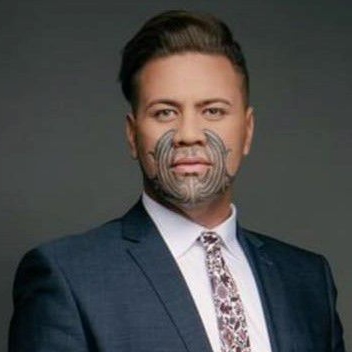Aotearoa has come under fire at the United Nations this week, with Māori leaders and human rights advocates calling out the New Zealand Government for what they describe as political deals cannot override Te Tiriti and international human rights.
Their intervention comes in the wake of a diplomatic fumble involving Deputy Prime Minister David Seymour and the contentious Regulatory Standards Bill.
In Geneva, Julia Whaipooti, Te Kāhui Tika Tangata Te Tatau-Urutahi, delivered a warning to the UN Expert Mechanism on the Rights of Indigenous Peoples (EMRIP), stating that the New Zealand Government is dismantling hard-won protections for Māori and undermining Te Tiriti o Waitangi.
“Our concerns have only deepened,” Whaipooti told the UN panel.
“The Government continues to remove measures that recognise and uphold Māori rights as Indigenous Peoples and Te Tiriti o Waitangi… against the warnings of the Waitangi Tribunal, against the advice of its own officials, and against the will of its citizens.”
Whaipooti urged the UN body to proceed with a follow-up country visit to Aotearoa despite the Government’s lack of cooperation, stating that “greater constitutional protection is urgently needed” to ensure that political deals cannot override Te Tiriti and international human rights.
UN breach sparks backlash
This response at the UN follows a political misstep revealed on Tuesday, after David Seymour pre-emptively responded to and disclosed correspondence from the UN Special Rapporteur on the Rights of Indigenous Peoples, Albert K Barume, expressing concern over the Government’s trajectory.
Seymour got pulled into line by the Prime Minister and Foreign Affairs Minister, Winston Peters, after he jumped the gun in responding to the letter from Barume.
The letter had been sent to the New Zealand Government as part of standard diplomatic processes, which typically involve a period of confidentiality while governments respond. Seymour dismissed the letter as “an affront to New Zealand’s sovereignty” and claimed the UN was “overreaching.”
His actions prompted criticism and revealed confusion within his own coalition Government about who should be responding to the UN.
Prime Minister Christopher Luxon said, although he too thought Barume’s letter was a waste of time, it was Winston Peters’ job to respond, and that he would provide a comprehensive response in due course.
Claire Charters, speaking on behalf of Pou Tikanga of the National Iwi Chairs Forum and the Aotearoa Centre for Indigenous Peoples and the Law, called Seymour’s actions an “international embarrassment”.
“Statements like this from New Zealand’s Deputy Prime Minister, who describes himself as upholding the right to equality, and from a state that portrays itself as supportive of human rights, is deeply troubling,” Charters said.
“It undermines the international human rights structure and reduces New Zealand’s authority to call out human rights abuse globally.”
She confirmed that Pou Tikanga, alongside the Human Rights Commission, will be formally addressing the breach of protocol with UN bodies and other international mechanisms.
Regulatory Standards Bill under fire
At the heart of the current criticism is the Government’s Regulatory Standards Bill, which is part of a broader suite of reforms that Māori leaders say will weaken legal protections for Te Tiriti o Waitangi and Indigenous rights.
Whaipooti described the RSB as a “regressive” policy that must be halted immediately, echoing widespread domestic opposition.
Despite this public and international pressure, Prime Minister Christopher Luxon doubled down this week, backing Seymour’s dismissive stance toward UN criticism. Luxon said he had “no issue” with Seymour’s inflammatory response and claimed the UN was “overstepping”.
But Māori leaders have challenged that view. They argue the Government is not only ignoring its moral obligations under Te Tiriti o Waitangi but also violating its binding commitments under the UN Declaration on the Rights of Indigenous Peoples (UNDRIP), which Aotearoa signed in 2010.
Charters highlighted the Government’s withdrawal from previous commitments to implement a national plan of action for UNDRIP, and its rejection of expert guidance from both the UN and Māori-led forums. “The Government unilaterally cancelled that process,” she said.
Undermining human rights at home and abroad
Whaipooti and Charters both noted that the language of human rights is increasingly being weaponised by the New Zealand Government to create division, casting Māori rights as somehow in conflict with the rights of other New Zealanders.
They say, the coalition is eroding the very foundations of human rights protection in Aotearoa, and diminishing the country’s standing on the world stage.
“This is not just a domestic issue, it is now a reputational issue for Aotearoa,” Charters warned.
The Human Rights Commission, the National Iwi Chairs Forum, and the Aotearoa Centre for Indigenous Peoples and the Law are continuing to work in partnership to resist what they call an assault on Māori constitutional rights, and they are urging the UN to do the same.




